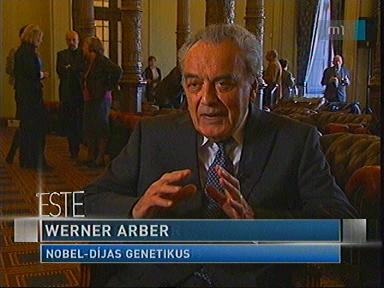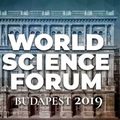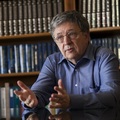World Science Forum 2011 - Day 1/4. - The changing landscape of science: emerging fields of science
World Science Forum 2011. Budapest, Thursday, November 17, 14:30-16:30 Plenary Session III.: The changing landscape of science: emerging science
A tudomány változó képe: a tudomány fejlődő területei
A WSF 2011 nyitónapjának harmadik plenáris ülése a felemelkedő új tudományterületekre összpontosít: a kvantuminformatika, a biotechnológia, a klímakutatás, a "zöld kémia" és az agykutatás legfrissebb eredményeiről számolnak be amerikai, indiai és francia tudósok.
Chair: Werner Arber, Swiss microbiologist and geneticist, Nobel Laureate
Werner Arber, svájci mikrobiológus, genetikus, orvostudományi Nobel-díjas (1978)
Video - World Science Forum 2007
H. Jeff Kimble 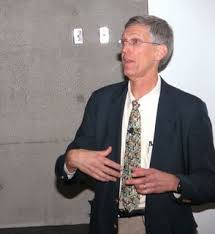
Professor, California Institute of Technology: Quantum computing, Quant information science
H. Jeff Kimble is the William L. Valentine Professor and Professor of Physics at Caltech. His research is in quantum optics and is noted for groundbreaking experiments in physics including one of the first demonstrations of teleportation of a quantum state, quantum logic gate, and the development of the first single atom laser. He is widely regarded as a pioneer of cavity quantum electrodynamics in achieving strong coupling between single atoms and photons in the optical domain. He was also among the first to achieve a squeezed state of light. Kimble's main research focus is in quantum information science and the quantum dynamics of open systems.
Richard A. Mathies College of Chemistry, University of California, Berkeley
The Greening of Chemistry
Society is highly dependent on the production of chemical materials and products to support all aspects of modern life. As the world population grows and as developing countries advance their standard of living, the challenge of providing these products in a manner that can be sustained by the ecosystem will become immense. The production of these chemical products, their use, and their disposal or recycling are intrinsically problems of chemistry.
Given these inescapable facts, the profession of chemistry must now take a more proactive role and responsibility in the development of sustainable chemical materials, products and practices. Since the problems are fundamentally chemical in nature, chemists must come up with the solutions!
At Berkeley we have accepted this responsibility to lead the way for the profession technically and as a role model. The actions we are taking include (1) the development of new sustainable chemical technologies to reduce the magnitude and the impact of society’s chemical and energy activities, (2) the development of a new multidisciplinary effort, The Berkeley Center for Green Chemistry (http://bcgc.berkeley.edu/) to organize and enhance sustainability activities on our campus and to reach out nationally and internationally for coordination and best practices transfer, and (3) the reconfiguration of the delivery and content of our educational curriculum and activities at all levels to emphasize sustainable green chemical practice, concepts and awareness so that all members of our profession advance the sustainability of our society through their work and decisions.
New sustainable chemical technologies being developed at Berkeley include: advancing synthetic biology via the Synthetic Biology Institute and the DOE Joint BioEnergy Institute to develop renewable methods for the production of fixed carbon materials for drugs, high value chemical commodities, and biofuels; Development of new photovoltaic nanotechnologies for more efficient capture and conversion of the sun’s energy; Development of novel materials for catalytic processes, water splitting, CO2 fixation, and hydrogen storage that enhance the efficiency of key chemical processes.
Our vision for sustainable chemical sciences instruction includes: Green chemistry instruction in our undergraduate lab courses; making sustainability and green chemistry a key part of graduate training; offering executive education programs in sustainable chemical practice to retrain the installed base of chemists and chemical engineers.
Berkeley has a strong tradition of leadership in the development of new chemical science and technology and in the evolution of society. By executing the proposals described here we will help the world move to a more sustainable chemical economy.
Richard A. Mathies, a Berkeley Center for Green Chemistry (Kaliforniai Egyetem) professzora a „zöld kémia" lehetőségéről beszélt. Kifejtette: nemrég alapított központjuk célja a fenntartható „kémiai gazdaság” megvalósítása, valamint generációs fordulat elérése a vegyi termékek termelésében és felhasználásában. Erre azért van szükség, mert a globális vegyipari termelés még a világ népességénél is sokkal gyorsabban nő, amiz jelentős nyomást fejt ki a szűkös természeti erőforrásokra és a hulladékkezelésre.
Richard A. Mathies szerint e célok elérésére az egyik kulcs az oktatás, központjukban ezért több tudományágat - vegyészetet, környezetvédelmet, orvostudományt - integráló képzést kínálnak az egyetemistáknak.
„Célunk, hogy minden leendő molekuláris kutatót a fenntarthatóságra neveljünk”.
Peter A. Singer 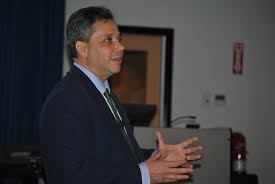
Grand Challenges Canada: “Grand Challenges in Global Health”
Peter Alexander Singer is Chief Executive Officer of Grand Challenges Canada and Director at the McLaughlin-Rotman Centre for Global Health, University Health Network and University of Toronto. Singer chairs the Canadian Academy of Health Sciences’ new assessment on Canada’s Strategic Role in Global Health. He has advised the Bill & Melinda Gates Foundation, the UN Secretary General’s office, the Government of Canada, PepsiCo, BioVeda China Venture Capital Fund, and several African Governments on global health. In 2007, Singer received the Michael Smith Prize as Canada’s Health Researcher of the Year in Population Health and Health Services. On June 30, 2011, Singer was appointed Officer of the Order of Canada. He is also a Fellow of the Royal Society of Canada, the Canadian Academy of Health Sciences, the US Institute of Medicine of the National Academies, and The Academy of Sciences for the Developing World (TWAS).
Vijay Chandru  Chairman, CEO Strand Life Sciences
Chairman, CEO Strand Life Sciences
Chandru served professor as Purdue University for 1982-1992. Later in 1992 he joined at the Indian Institute of Science. Since 2003 he served as Research Affiliate of the Lab for Information and Decision Systems at MIT. He has co-authored the book Combinatorial Optimization: The Computer Science and Engineering Handbook. He is also a founder of the Association of Biotech led Enterprises (ABLE) and continues to serve as an executive council member. He is one of the inventors of the Simputer.
Stanislas Dehaene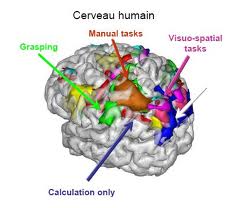
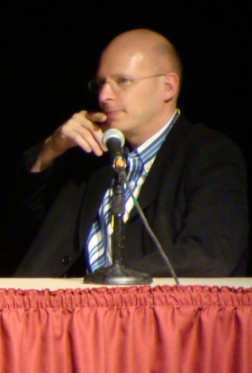 Professor, Collège de France: Brain and cognitive sciences
Professor, Collège de France: Brain and cognitive sciences
STANISLAS DEHAENE is one of Europe’s leading cognitive neuroscientists. Born in 1965, he has been studying cognitive science since the last 22 years and is the author of five books, two television movies, and over 150 scientific publications in journals such asScience, Nature, Nature Neuroscience, and PNAS. In 2005, at the unusually young age of 40, he was simultaneously elected to the Académie des Sciences, and as a professor of the Collège de France, which created a new chair of Experimental Cognitive Psychology for him.
Stanislas Dehaene directs the INSERM-CEA Cognitive Neuroimaging unit, located in Orsay near Paris (www.unicog.org). His work uses advanced techniques of functional magnetic resonance imaging, electro-encephalography, intracranial electrodes, and psychological manipulations to study how culture and biology interact in the human brain. He is renowned for his work on the neural bases of mathematical abilities, but also for his studies of reading, language, bilingualism, and consciousness. His work has been frequently featured in the international press and on television. Stanislas Dehaene has received several international prizes including the James S. McDonnell centennial fellowship (1,000,000 $ grant), the Louis D foundation prize (750,000 €), and the Piux XI medal of the Pontifical Academy of Sciences (Vatican). He routinely travels to the U.S. and Asia for invited talks and meetings.
He is the author of The Number Sense: How Mathematical Knowledge Is Embedded In Our Brains; and Reading in the Brain The Science and Evolution of a Cultural Invention.
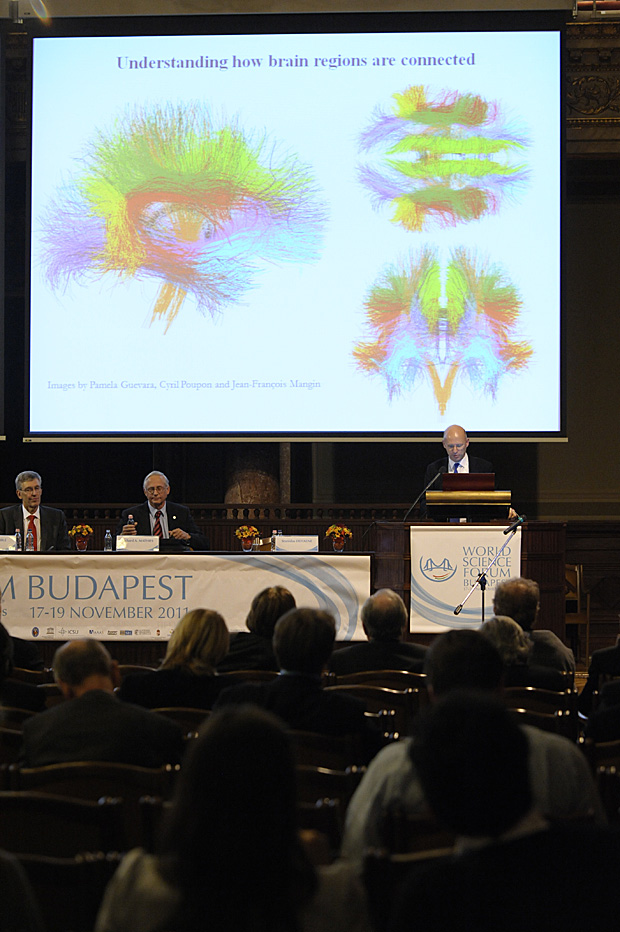 Stanislas Dehaene, a Collége de France professzora az agykutatásban elért legújabb eredményekről számolt be. Egyre pontosabban tudjuk leírni az emberi agy anatómiáját és feltérképezni aktivitását. A mai kutatások arra összpontosítanak, hogy az egyes kognitív tevékenységek az agy mely részeit és milyen mértékben aktiválják. Ma már a csecsemők agyát is biztonságosan és eredményesen lehet szkennelni. „Amikor egy baba édesanyja beszédére figyel, nagyon hasonló területek aktiválódnak agyában, mint egy felnőttében, amikor valakit hallgat”.
Stanislas Dehaene, a Collége de France professzora az agykutatásban elért legújabb eredményekről számolt be. Egyre pontosabban tudjuk leírni az emberi agy anatómiáját és feltérképezni aktivitását. A mai kutatások arra összpontosítanak, hogy az egyes kognitív tevékenységek az agy mely részeit és milyen mértékben aktiválják. Ma már a csecsemők agyát is biztonságosan és eredményesen lehet szkennelni. „Amikor egy baba édesanyja beszédére figyel, nagyon hasonló területek aktiválódnak agyában, mint egy felnőttében, amikor valakit hallgat”.
Stanislas Dehaene elmondta: más fajok, például majmok agyát vizsgálva fény derülhet az emberi nyelv eredetére. A nyelv kutatásában elért egyik eredményük, hogy az írás és olvasás megtanulása az élő beszéd megértését is javítja. A francia tudós kutatócsoportja a tudatos és tudattalan érzékelés közti különbséget is vizsgálja. Kimutatták például az agytevékenység eltérését aközött, ha egy kimondott szóra tudatosan odafigyelünk, és ha a fülünkig eljut ugyan, de a tudatunkig nem.
A kutatás egyik legújabb témája: agyi tevékenység alapján dekódolni az ingert. Kísérletekben sikerült például a véletlennél nagyobb eséllyel eltalálni, hogy a vizsgálati személy milyen számot látott, kizárólag agyának reakciója alapján.
Sir Brian Hoskins 
Director, Grantham Institute at Imperial College London
Sir Brian Hoskins became the first Director of the Grantham Institute for Climate Change at Imperial College London in January 2008, and now shares his time between Imperial and Reading University, where he is Professor of Meteorology.
His degrees are in mathematics from the University of Cambridge and he spent post-doc years in the USA before moving to Reading, where he became a professor in his thirties and was a head of department for six years. For the 10 years up to September 2010 he held a Royal Society Research Professorship. His research is in weather and climate, in particular the understanding of atmospheric motion from frontal to planetary scales.
His international roles have included being vice-chair of the Joint Scientific Committee for the World Climate Research Programme, President of the International Association of Meteorology and Atmospheric Sciences and involvement in the 2007 IPCC international climate change assessment. He has also had numerous UK roles, including playing a major part in the 2000 Report by The Royal Commission on Environmental Pollution that first proposed a 60% target for UK carbon dioxide emission reduction by 2050, and is currently a member of the UK Committee on Climate Change. He is a member of the science academies of the UK, USA, China and Europe and has received a number of awards including the top prizes of the UK and US Meteorological Societies and honorary DScs from the Universities of Bristol and East Anglia. He was knighted in 2007 for his services to the environment.
Video: Sir Brian Hoskins, What does the future hold?, Fri 10 July
A WSF 2011-en Sir Brian Hoskins, a londoni Imperial College klímakutatással foglalkozó Grantham Intézetének igazgatója a hosszú távú hőmérséklet-előrejelzések nagyfokú bizonytalanságát és pontosabbá válásának lehetőségét taglalta. A bizonytalanság ellenére egyes jóslatok riasztónak tűnnek: például az, mely szerint az állandóan fagyott talajú északi területeken nem kevesebb, mint nyolc Celsius-fokos felmelegedés várható. Más adatok már most aggodalomra adnak okot: a tengerszint emelkedése jelenleg átlagosan 3 milliméter évente, azaz 3 cm minden évtizedben. „Egyre jobban értjük, pontosabban szimuláljuk és jelezzük előre a klímarendszert, de még sok kihívás áll tudományunk előtt”.
A tanácskozáson elnöklő Werner Arber mindehhez kapcsolódva kiemelte a tudomány felelősségét, hogy a minél távolabbi jövőbe tekintsen.
COFFEE BREAK 

